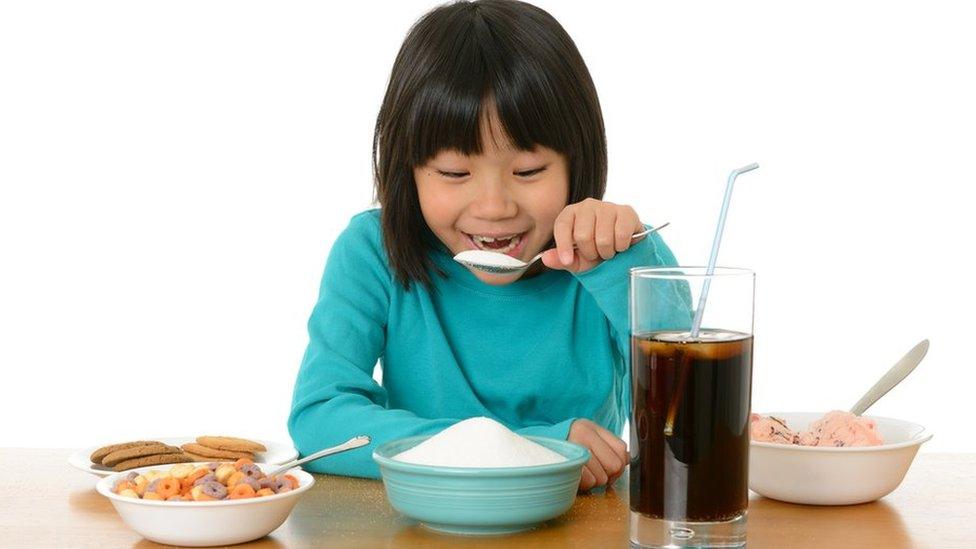Some US sweets removed from shops over banned ingredients
- Published
- comments
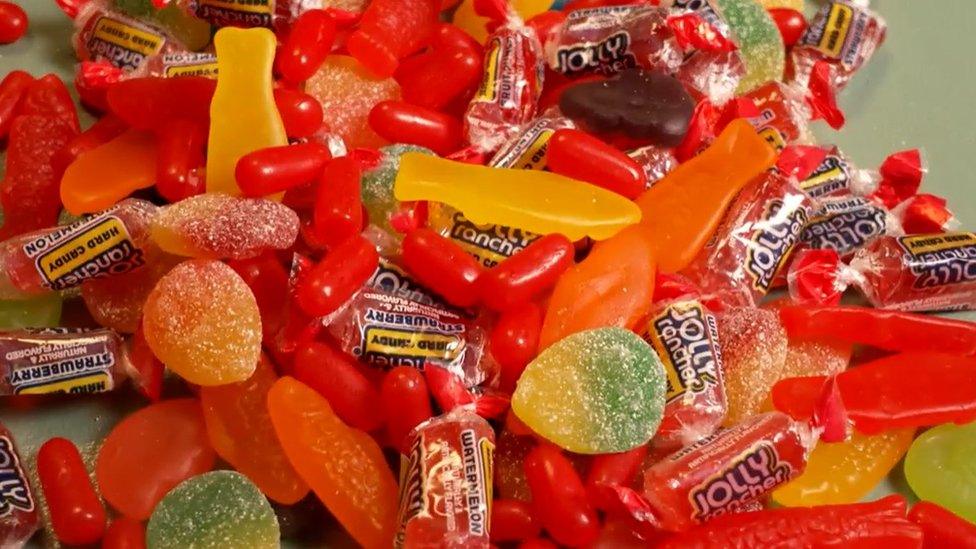
Products including Jolly Ranchers and Swedish Fish contain compounds that are banned in the UK
Some sweets and drinks imported from the US have been seized from shops across the country, because they contain ingredients which are banned in the UK.
This includes some Mountain Dew drinks, sweets like Jolly Ranchers, Swedish Fish and Lemon Heads - all popular brands which you might have seen on Instagram and TikTok.
It's because some of the ingredients they contain have been banned by the UK government because it says they could be harmful to people's health.
Experts say don't worry if you have eaten these sweets before, but if you do see them in shops remember they shouldn't be being sold in the UK.
US sweets and products can be sold in the UK if they meet UK food standards, but those found on the raid were "American branded and not destined for the UK".
Stephanie Young is a trading standards team leader in Staffordshire, where officers took around £8,000 of sweets from 22 shops.
Stephanie said many of the shops selling the sweets do not know the ingredients in them are banned.
People are selling these products not realising they have banned ingredients in them.
The manufacturers of Lemonheads, Starburst Gummies, Hershey's and Jolly Ranchers told the BBC their products were produced legally in the US and that they are not involved with the sale of their products in this country.
They added they any products being sold in the UK were being done so illegally, and not associated with their brands.
Mars, which manufactures Starburst Gummies, added it had been working to prevent unauthorised third party importation of its products in the UK.
Last year, £25m worth of US sweets were imported which is 70% more than were imported in 2017.
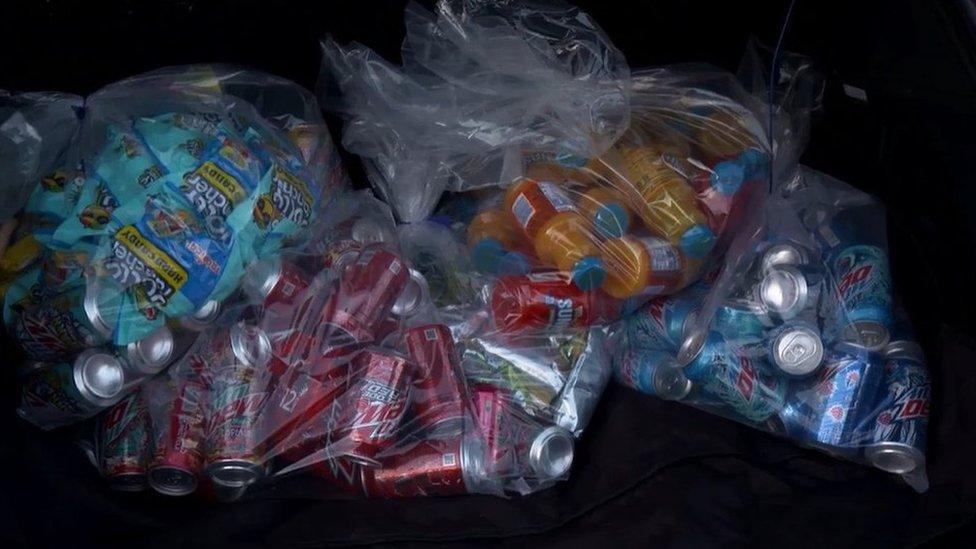
The sweets and drinks have been found in small independent shops as well as large UK retailers
The US sweets and drinks have been found in small independent shops as well as large UK retailers, and supermarkets.
In Burton-upon-Trent more than £300 worth of sweets that contained the banned ingredients were found in a local corner shop.
Ms Young, who is also lead officer for the Chartered Trading Standards Institute (CTSI), said the sweets must be reaching the UK in secret through the ports.
"The volume of stuff that we get through the ports, only a small percentage will be checked," she said.
Why are some sweets banned in the UK but legal in the US?
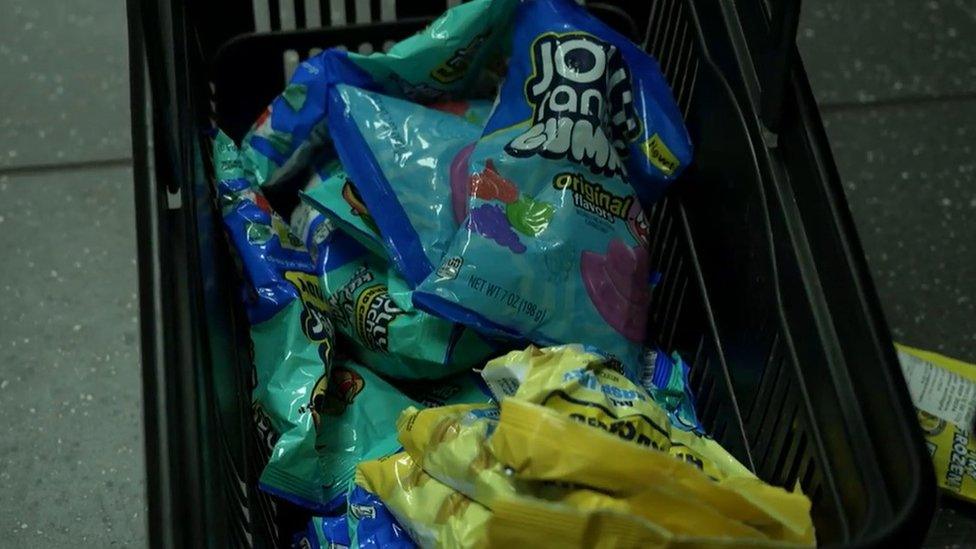
Many of the banned sweets get through UK ports as only a small percentage are checked, Ms Young said
Emeritus Professor Erik Millstone from the University of Sussex told the BBC that it is possible to ban a product in the UK if you think it might be harmful.
He told the BBC: "The US typically demands proof that something is harmful, whereas here (in the UK) we are prepared to restrict compounds even if there yet isn't solid proof."
He had said that while the amount of banned products finding their way onto shelves was concerning, people shouldn't panic if they have eaten these products already.
But added: "If you can avoid them in future that's a prudent (sensible) thing to do".
One of the products, Jolly Ranchers, contains mineral oil which if contaminated with other compounds can increase the likelihood of cancer.
Mountain Dew contains Calcium Disodium EDTA which was banned in drinks in the UK after animal studies showed it could effect reproduction and development, and also could increase the risk of certain cancers developing.
Dr Punam Krishan, investigating for BBC programme Morning Live, said she had assumed sweets sold in the UK would be legal.
"Sweets and candy are meant to be a treat for children and adults and while they'll never be deemed healthy, to learn there are products that are on UK shelves that have ingredients that are not authorised in this country is a cause for concern," she said.
CTSI chief executive John Herriman said the UK "prides itself on high food standards" and that it was "extremely worrying" potentially dangerous products were on sale on high streets".
Trading Standards work extremely hard to protect the public by removing dangerous products from sale, but the popularity of these items is being increased by videos on social media platforms, such as TikTok.
He added: "The increase in demand means importers are sending these through our ports and borders in the millions, and these are then being widely distributed and ending up in retail stores and in the hands of children."
- Published25 August 2021
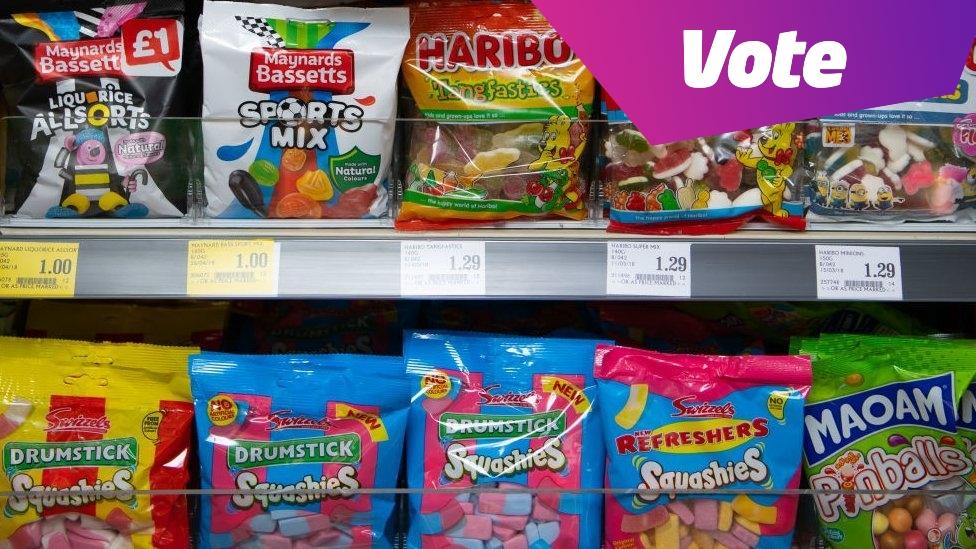
- Published17 August 2019
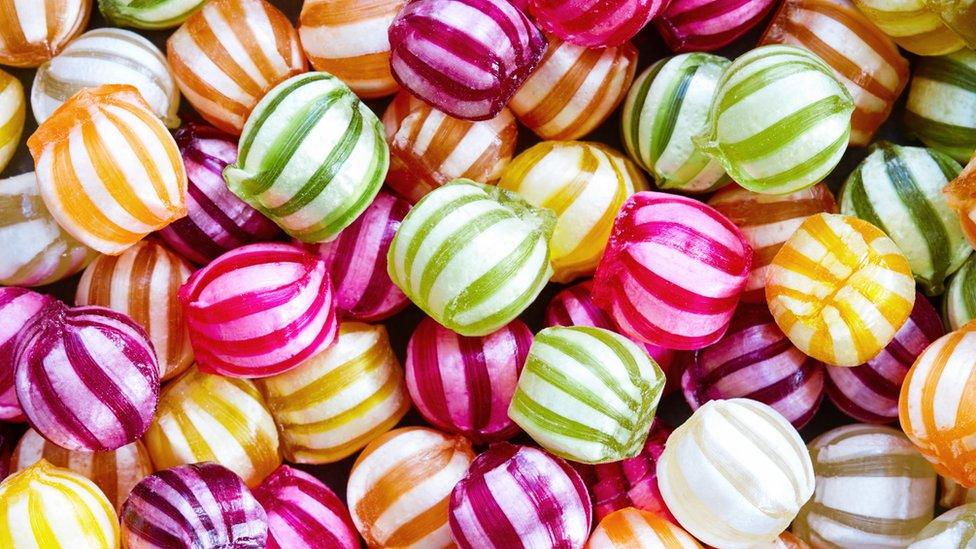
- Published6 January 2019
